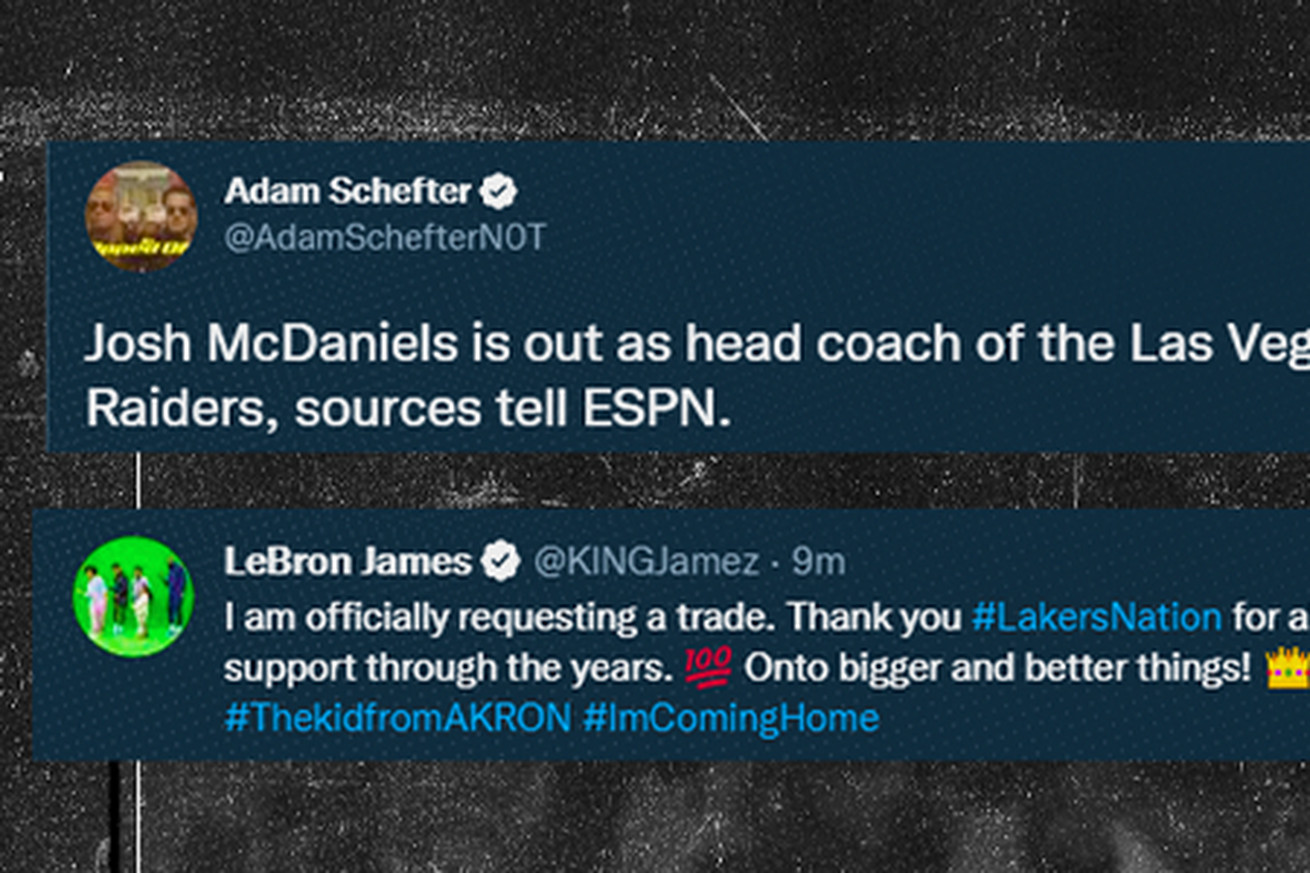We’re one day into the new Twitter verification, and it’s a mess.
It’s the first day of the public rollout of Elon Musk’s “verification for all” (as long as you give me $8), and it’s going exactly how many predicted. Hours into the first day all manners of accounts are popping up trying to deceive people or spread misinformation, and this is especially horrible for sports fans.
It started off fun enough, with “Ballsack Sports,” the infamous sports parody account getting their “outlet” verified, which hilarious in how sublimely ridiculous this whole process is. The account routinely make funny, and creative fake athlete quotes that sound real enough that they fool major media outlets. Now THAT is an instance of parody, and it preyed on the concept of media outlets falling over themselves to be first to a story, rather than being correct — or even questioning for a second if “Ballsack Sports” would be a real site.
Then, we got stuff like this.
Under Twitter’s current rules shit like the above is allowed, because the account indicates it’s “parody” in the description, allowing it to skirt around the platform’s ban on imitation. Let’s be abundantly clear: This tweet is not parody at all. There is nothing about this which is trying to achieve a comedic effect, and there’s no attempt to exaggerate the writing style of Adam Schefter, both of which are prerequisites of comedy.
It’s designed to deceive and misinform, which isn’t new for Twitter. That might be the most offensive part of this: It’s just so mindless and uncreative. Fake Schefter accounts have existed for years, duping people not looking for the check mark or scrutinizing the news. The difference now is that the Tweet as pictured gives absolutely not indication outside or the username @AdamSchefterNOT that would lead people to know it’s not the actual ESPN NFL insider.
It wasn’t just Schefter this happened with. We had a fake LeBron too.
And a fake Aroldis Chapman.
There was also a Connor McDavid.
As it stands, Twitter is playing whack-a-mole with these accounts to suspend ones that don’t clearly say “parody,” but the Adam Schefter account is still tweeting as of 4:10 p.m. ET — and getting lots of retweets from people who don’t know any better. Trust me, it only got less funny, and less creative along the way. Tends to be people with one-note jokes can’t really pivot and become funny… who knew?
So far the damage has been pretty benign, but it’s a matter of time before we start getting some truly vile things being tweeted from one of these “parody” accounts, because of course that’s where this was always going to go. The entire concept of paid verification was such half-witted stupidity that destroying the experience of the entire platform has been priced at $8 a user, and we’re watching in real time as it melts into oblivion.
Twitter’s “blue checkmark,” began, and was intended to be a way to easily identify who people say they are. For instance, I’m verified on Twitter — there’s nothing special about it. However, a several years back we were asked if we wanted out accounts verified for security purposes, and I did. It required me to change the e-mail address I originally signed my account up with to an official address which was confirmed by my employer and Twitter, as well as (at the time) use my full real name as my account name, and a headshot showing my face.
Now, you just need $8. It was never about it being something to lord over others, as Musk has suggested, but simply a way to know if someone you trusted were who they said they were. However, when you tell people something is exclusive, even when it’s not — they become desperate to get it too, and when you attach a price tag to it there’s a good chance you’re going to make some money off it.
This isn’t cute. It’s not harmless fun. These accounts are just annoying, and if it continues they’ll be annoying enough to dissuade athletes and notable figures from using the platform — because who wants the headache when waiting for Twitter to ban a fake impersonation account is the norm? When people we want to follow leave, there’s no incentive to stick around. Then good luck selling ad space to a bunch of bots and joke accounts because all the adults have moved on.













